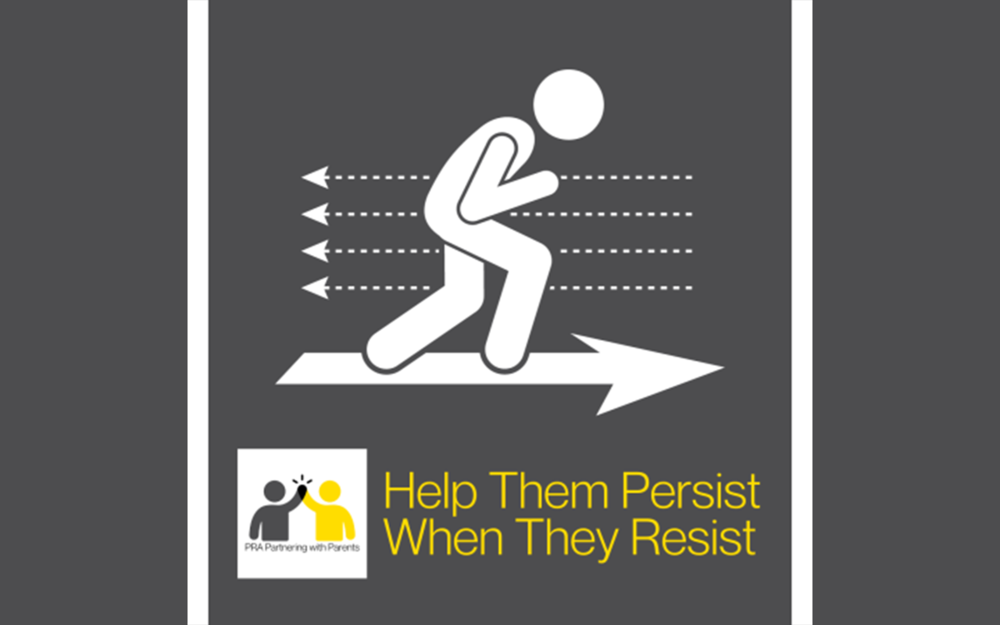By: Casey Baldwin
Middle School Assistant Principal
Effort is defined as a vigorous determined attempt. As we reflect on the semester, and yes, we all should, parents, teachers and students alike; what did you learn? Not just academically, but about yourself. What kind of student are you? What did you learn as a middle school parent? Teacher? What do you want to change?
We often determine our ‘smarts’ by the letter grades that are assigned. At an academically rigorous school, yes, grades are important, but I would debate that learning the processes and putting in the effort of trying and possibly failing is more important than possibly the outcome. Oftentimes we hear, “The teacher gave me a B,” which amounts to students effectively absolving themselves of their role in the grade. We as educators have to rephrase their statement and say, “No, you earned a B.”
Students have better outcomes when they focus their attention on the effort they put into something. That is when they fall in love with learning and gain from the process. As administrators, one thing we’ve noticed is that oftentimes our students are capable of learning the material at first glance. They may be able to skate through school with little to no effort exerted. This can have its benefits, for example the student may get their work done quickly or they may not have to study the material but it can also cause many challenges. As students progress through their education, the content becomes more abstract and they are expected to do some learning on their own. Effort teaches us that we can do more than we thought. We learn new skills and abilities when we take the time to put in consistent effort. When we put in effort, we learn. Whether the effort produces results or not, we learn and adapt based on what we learn from our efforts. If our efforts lead us further away from our goal, then we need to change our strategy. If our effort brings us closer to our goal, we can double down with our effort.
This is why I love strength training. The amount of effort (or lack thereof) I put in, directly relates to my intended outcome and strength goal. There’s no way I’m walking up to a 350-pound bar to deadlift when I haven’t properly executed my workouts for the last five-six months. Effort helps us push ourselves beyond our limits, expanding our skills and capabilities. This leads to self exploration and discovery of new skills.
Now, as parents, you might be asking yourself, “How can I get my kid to put in effort?!” First things first, if you’re reading this, you probably have a middle school student. That in itself can be a hurdle. As we’ve discussed, students are going through puberty causing different maturity levels and what we think is important is not usually important to your teen. Although it may take some effort (see what I did there?), below are seven ways parents can help kids persist at tasks they resist…
7 ways parents can help kids persist at tasks they resist
Focus on autonomy, meaning and progress
When students have autonomy, believe their work has meaning and feel like they are making progress, they are more likely to have a positive inner work life. As a parent you can help your child find meaning in the task, for example, you might say, “the more you practice your math facts, the more your brain will do this automatically. Finally, notice your child’s progress. Help them set SMART goals.
Focus on joy, and leverage imagination
Prioritize joy and progress over achievement and ability and remind them that everyone has to start somewhere. If your child is a self-defeatist, leverage their imagination. For example, if they really want to make the baseball team, encourage them to fantasize about making the baseball team.
Work with them, not on them
Be empathetic towards your child’s mixed feelings or contradictory ideas about something or someone. For example, a student may have an essay to write. They know and understand that there is a due date, and they may face blow back from their teacher if they don’t do it. They might find the assignment dull, or difficult, maybe they dislike the teacher. As a parent, stay calm, and try to understand and explore options. And, when you approach this scenario with your student, you might say, “It makes sense to me that you feel like putting your efforts elsewhere. I can also see some reasons why it might be worth trying. If you decide to do the assignment, I am happy to help.”
Tie efforts to values and goals
Connect what they’re doing to the why, and not the immediate consequences. Oftentimes students will think “I’m never using this information again” and that this negative feeling is never going to pass. Instead, focus on the journey, and what they will learn along the way.
Model positivity and proactive behavior
Let your child see you do things you don’t want to do. If we can build resilience skills we can offer your child a sense of self mastery and in turn will have a cascading positive impact on their academic motivation and study skills.
Forecast consequences, but don’t make choices for them
Help your child get clarity on options, but don’t force them to do anything. For example you might say, “it’s okay if you don’t like doing math homework. But, if you fail math, you cannot play basketball. Sometimes, you have to do things you don’t enjoy in order to do things you love.”
As we head into the second semester, I want to leave you with this quote, “Success is never owned; it is only rented — and the rent is due every day.”

